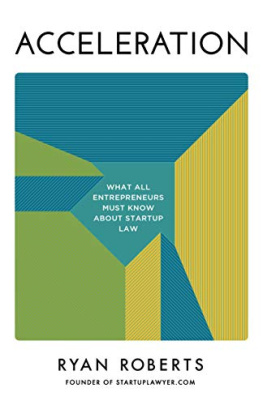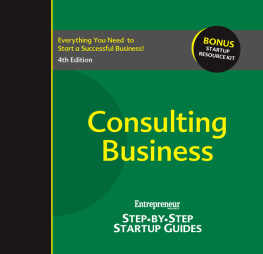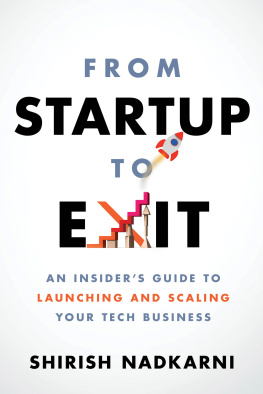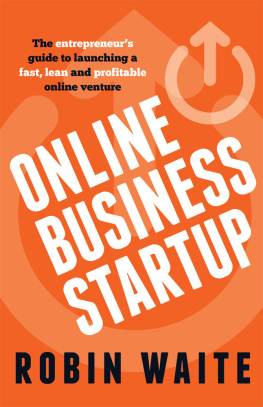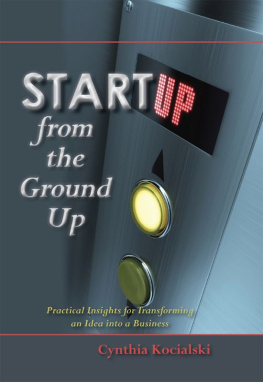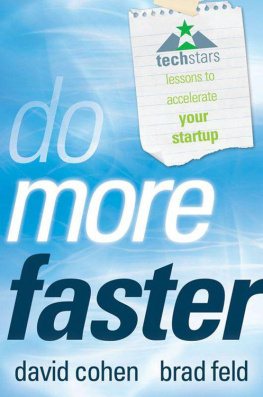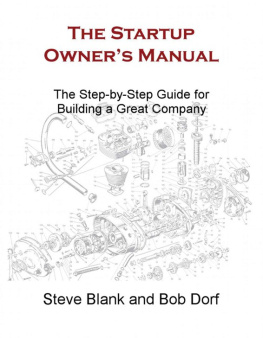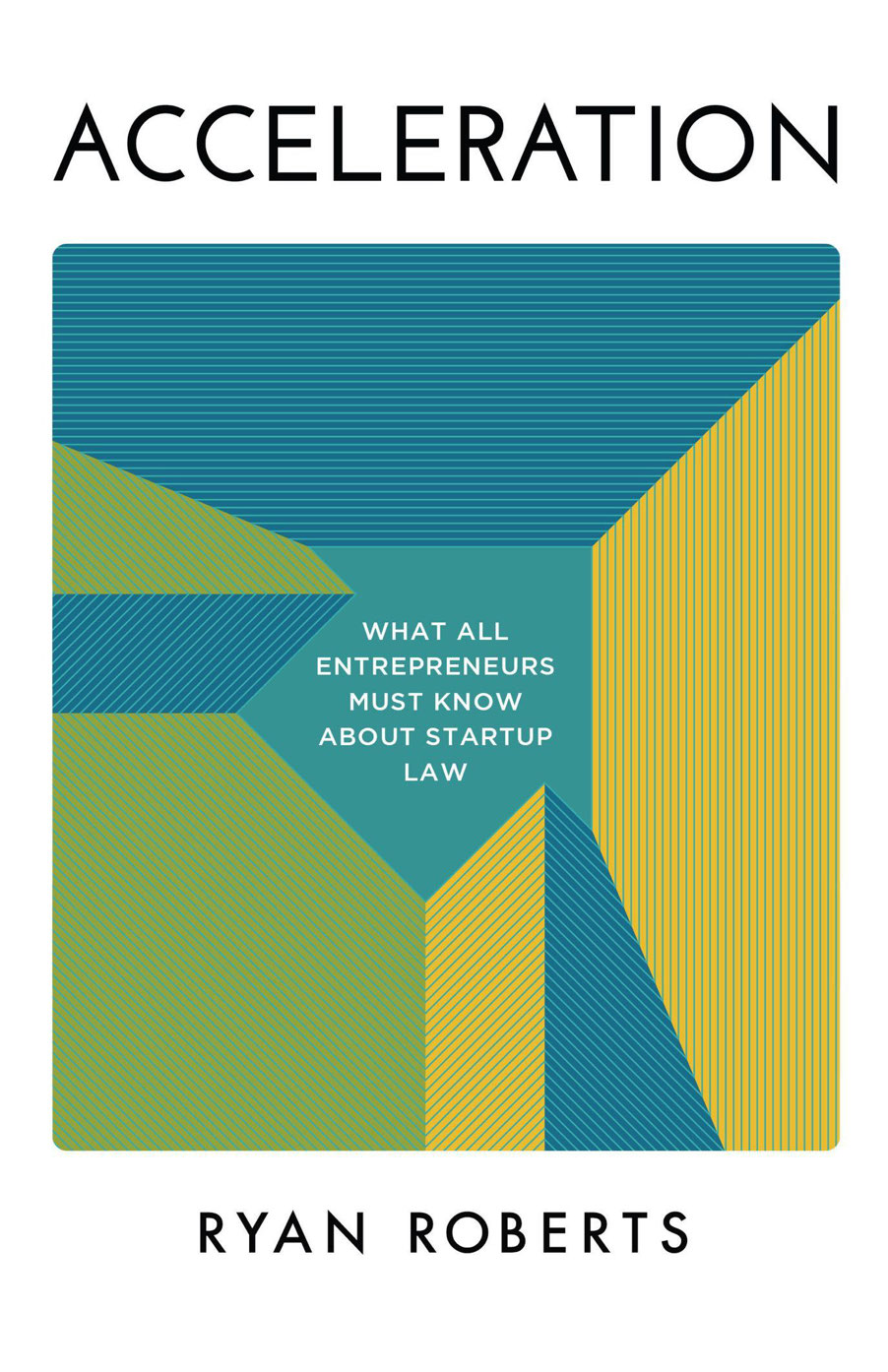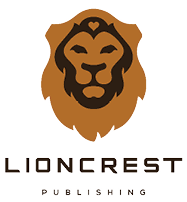]>
]>
Copyright 2019 Ryan Roberts
All rights reserved.
ISBN: 978-1-5445-1340-9
]>
To all entrepreneurs, in the words of Tupac Amaru Shakur and/or Alfred Adler, Follow your heart, but take your brain with you.
]>
Contents
Caution: Accelerators Triggering Cofounder Breakups
Covenants: Seed Rounds vs. Venture Capital Rounds
]>
Disclaimer
The material in this book is for educational purposes only. This book is sold to you with the understanding that neither the author nor publisher of this book is rendering legal, accounting, tax, or investment advice and services of any kind. The author and publisher, including any and all of their affiliates, do not assume any liability for damages of any kind, including loss of profit or any type of special, incidental, consequential or other damages, any errors or omissions or for any consequences resulting indirectly from your use of this book, nor do they make any representations or warranties with respect to the accuracy of completeness of the material contained in this book. For legal, accounting, tax, or investment advice, please consult with the appropriate professional about your particular situation, as the content may not be suitable for your particular situation. The views expressed by the author of this book may not reflect the views shared by the company or firm the author is employed by at the time of publishing or in the future.
]>
Introduction
Lets face it, founding a startup is a totally irrational decision. Most people opt to start a career, climb the corporate ladder, then stay as high as they can be eking out a comfortable and rather stable existence. When you choose the startup path, youre making a commitment to low pay, all-nighters, and doing whatever it takes to achieve success against all odds. As a founder, youre bombarded by an ever-growing list of to-dos while trying to accomplish an insane number of tasks, all simultaneously. From building a product or prototype to snagging those first few customers to hustling to cobble together financing, who has time for the legal aspects, right?
Just the founders who want to be successful or cross the finish line, thats who.
The legal aspects impact all your decisions, and if you get those decisions wrong, it creates a headache over lost revenue or time, or worse, a heartbreak over lost venture capital financings or acquisitions. Some founders believe there is no such thing as a shortcut; they must sacrifice and endure the pain of making the wrong legal decisions. Thats how we learn, isnt it, through trial and error?
What if I told you theres another way to learn? That you do not have to make potential million-dollar mistakes in order to understand the legal ins and outs of starting a business? Not only does this path exist, but Im also going to show you how to avoid the common legal pitfalls that ensnare many founders.
As a startup lawyer, I work as a hands-on advisor to my clients, helping them understand and navigate all phases of the growth process from incorporation to seed financing to venture capital financing to a liquidity event such as an acquisition. In the last decade, Ive helped my clients, which include high-growth companies and venture capitalists, close more than $500 million in transactions from seed rounds to Series A, B, C, and D rounds. Ive represented more than 1,000 clients in places like California, Texas, New York, India, Australia, the European Union, and the Middle East.
Statistically, I have most likely seen everything.
I know, you may roll your eyes when you read the word lawyer. It likely dredges up images of someone wearing an expensive suit, sitting behind a big desk in a stuffy-looking office, and speaking in legalese that only other lawyers can decipherin-between squash games with other similar lawyers, of course.
Take that image and burn it. Im not that type of lawyer, and while this book gives you an inside look at how to protect your company, and yourself, from unintentional, self-inflicted legal wounds, my goal is to do it in a way that anyone without a law degree can understand. While this book is geared toward first- and second-time startup entrepreneurs, its a great refresher for seasoned entrepreneurs, too.
No Two Startups Are the Same, but Their Legal Paths Are
Before prospective clients even step into my office, I already know a few things about them and their startups. I know that they have a tight budget, that theyve worked hard to get where they are and will continue to work hard, and that they have to make a lot of important decisions relatively quickly.
I also know that success, and its definition, varies from founder to founder.
Some measure it in the monetary heights they climb. For others, its about impact and influence. The founders I work with have different personalities and aspirations. Some founders like forging their own path and being their own boss. Others want to see how far their technology can take them, or how far they can take their technology.
Some are trying to give back to their communities or the people who have supported them throughout the years. I remember working with one cofounding team at the very beginning of their startups founding, at a time when they had no money. Im talking dead broke. Four years later, the cofounders sold the company, and the first thing one of them did was pay off his mothers house and other debts.
While no two prospective clients and their companies are alike, they do share one similaritythe legal path they will tend to follow. The vast majority of startups should follow the same legal path, unless there is a compelling reason to deviate from what some might call market or standard approaches. But its tough to know when your startup has to deviate. Thus, a standard approach is where to start and also where to fall back on when you arent sure.
What You Will Find in This Book
In the dynamic startup environment, founders have to make rapid decisions, yet simultaneously have the patience to await the results. In my work, Ive observed three types of founders. Theres the founder who doesnt care that much about the legal decisions, so he makes rash ones for the sake of speed. He makes decisions so fast, without contemplating any consequences that he hurts the company in the process.
Then theres the founder who cares so much that he obsesses over any legal decision. He needs as much information as possible; he needs to talk to everyone he can to get their input, and then he has to sit and think through all his options. This takes so long that he puts his startup in a literal holding pattern. He puts off making decisions for weeks, sometimes months. He too, hurts his company in the process.
Both of these founders display what I call analysis paralysis. One cares too little; the other cares too much, and both put off making critical decisions for their startups.
There is the third type of founder, though. This person has attained a balance. She cares about the legal decisions, but not so much that she cannot decide. She makes decisions at a prudent pace, while understanding their short- and long-term implications.
Guess which type of founder this book encourages? If you guessed the third type, youre spot-on. I want you to care about the legal decisions you must make for your company but without becoming paralyzed from making them. I want you to be thoughtful and to understand the choices you will be asked to make. I want to help you understand the why that youll face. Ive found that when founders understand the why behind their decisions, then they can make those decisions faster and with more confidence, benefiting their startup with a solid legal foundation.
Next page
